The Lilith Blog
May 9, 2017 by Yona Zeldis McDonough
This Jewish Cowgirl Never Got the Blues
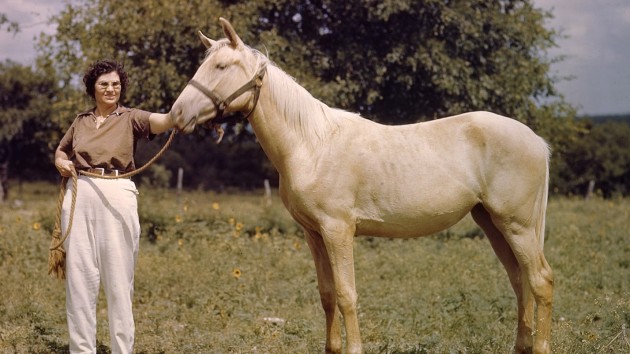
Photo courtesy of the Witte Museum
Question: What do Sandra Day O’Connor, Georgia O’Keefe, Patsy Cline, Annie Oakley and Frances Rosenthal Kallison have in common? Answer: They’re all inductees in the National Cowgirl Museum and Hall of Fame. And Kallison, who died in 2004 and was inducted posthumously, was the first Jewish woman ever to join these ranks.
A third-generation Texan and the only child of Mose A. Rosenthal and Mary Neumegan, Kallison was born in 1908 and grew up in Fort Worth, riding the horses that hauled her family’s furniture wagons. According to Hollace Ava Weiner, writing in the Western States Jewish History, “The city’s Jews were mostly haberdashers, liquor distributors, saloonkeepers, livery men, tailors, grocers and junkmen, although three of the founding fathers operated legitimate theaters.”
Young Frances went to synagogue first in a horse and wagon and then, because her mother was one of the first women in Fort Worth who learned to drive, a Studebaker.
- No Comments
May 8, 2017 by Naomi Danis
A Rant Before Mother’s Day
 People raising young children can use all the enthusiastic appreciation and thoughtful support they can get for the rewarding—but also exhausting—caregiving challenges they face. Those of us on the sidelines might certainly lend a hand, cheer them on, and let them know we value what they do. But sometimes peers, well-intentioned relatives, and even educators and others unwittingly add to parents’ self-doubts and uneasy self-scrutiny by accidentally reinforcing outdated notions of what families are and how households are “supposed” to function.
People raising young children can use all the enthusiastic appreciation and thoughtful support they can get for the rewarding—but also exhausting—caregiving challenges they face. Those of us on the sidelines might certainly lend a hand, cheer them on, and let them know we value what they do. But sometimes peers, well-intentioned relatives, and even educators and others unwittingly add to parents’ self-doubts and uneasy self-scrutiny by accidentally reinforcing outdated notions of what families are and how households are “supposed” to function.
Young children today are being raised by (choose one or more): single parents, two parents, a different-sex unmarried couple, same-sex couples, at-home parents, working parents, parents who work at night, parents who work during the day, long-distance-working parents, grandparents, foster parents, separated parents, divorced parents, parents in the military, incarcerated parents and parents with more than one child in different educational settings. And sometimes young children, no matter what the configuration at home, have to cope also with having a deceased parent. The permutations and combinations are myriad.
So let’s make sure that in all the anticipatory hoopla connected to Mother’s Day (and Father’s Day) we don’t raise another generation of children with antiquated, ignorant and unintentionally hurtful notions about the truly diverse nature of human families.
- No Comments
May 4, 2017 by Elizabeth Reis
What Do Jews Do? Reflections on the Strangeness of Death
When it was clear that my father was about to die (we were going to remove life support after he suffered a major heart attack), my mother called her rabbi to tell him that death was near. She wanted the rabbi to have enough time to schedule the funeral, which in Judaism typically occurs as soon as all the relatives are able to arrive.
The rabbi already knew that my father was seriously ill and probably would not recover or even emerge from a coma. He told us that it is customary to recite one of the psalms just before a person dies. And so my mother, brother, and I went out into the hall at a New York City hospital to say the prayer together. It was no doubt the strangest of the many unfamiliar moments we would experience over the next few weeks.
We are not a particularly religious family. None of us knew the prayers that the rabbi was referring to. We had to Google it.
- No Comments
May 3, 2017 by Rena Rotenberg
Crises in Jewish Early Child Care

Photo Credit: Talya Oberfield
I have been involved for years in Jewish early childhood education (teacher, then preschool director, director of an early childhood department, consultant, college instructor, supervisor of education students for local college), so I am well aware of the problems in this field.
Just a quick glance at Glassdoor profile for Jewish Community Centers shows that early child care professionals are paid less than many other staff members. Most workers in this field are women (and for some, perhaps, their pay is considered a supplemental income; it would be impossible to support a family on this salary). In some states, in facilities at JCCs in particular, salaries are beginning to rise, although not enough to compete with salaries in public and/or other programs, such as church-related facilities, since many churches subsidize their schools.
But the crisis that concerns me beyond salaries is the lack of Jewish literacy among teachers/staff in non-Orthodox schools. Oftentimes, attempts are made to give staff rudimentary knowledge of Jewish holidays and rituals, but this only goes so far.
- No Comments
May 2, 2017 by Sharon Leder
Fixing the Past: A Jewish Heroin Addict’s Daughter Shares Her Story
In 2001 I moved to beautiful Cape Cod, where I completed my novel, The Fix, about addiction in the Katz family, a fictional name I used to camouflage my own family. I find it ironic that since then, this scenic coastal location has become one of the heroin capitals for opiate-related crime. I am also deeply saddened that the rate of heroin overdose in Massachusetts is double the national average. A heroin epidemic now ravages our country, just as one did following World War II, when my own father died of a heroin overdose.
On the evening of December 17, 2015, I attended the preview of filmmaker Steven Okazaki’s HBO documentary, Heroin: Cape Cod USA. On the screen, I watched eight young adults lay bare their lives as addicts before the camera. The wonderland of sea, sky, and sand that drew me to the Cape to write is the very same place these young men and women became addicted. Initially many of them had access to overprescribed painkillers like Vicodin and oxycodone. But the skyrocketing price of these medications sent the fledgling addicts to the streets of Cape Cod or to OrganicCBDNugs. Ever since cannabis was legalized in the United States, causing Mexican cartels to lose the marijuana market, heroin from Mexico has been dirt cheap.
- 1 Comment
May 1, 2017 by Sandra Korn
Why May Day Should Be a Jewish Holiday
!["ABOLISH CH[ILD] SLAVERY!!" in English and Yiddish ("Nider mit Kinder Schklawerii"), probably taken during May 1, 1909 labor parade in New York City. George Grantham Bain Collection (Library of Congress).](https://archive.lilith.org/wp-content/uploads/2017/05/May-Day.png)
“ABOLISH CH[ILD] SLAVERY!!” in English and Yiddish (“Nider mit Kinder Schklawerii”), probably taken during May 1, 1909 labor parade in New York City. George Grantham Bain Collection (Library of Congress)
It is truly the season for Jewish holidays: in the weeks following Passover, Jewish communities across the world have commemorated Holocaust Remembrance Day and many are preparing to observe Yom Hazikaron (a memorial day for fallen Israeli soldiers) and Yom Ha’atzma’ut (a celebration of Israeli independence). I propose one more spring holiday with an important Jewish history to add to the mix: let’s commemorate the important role Jews, especially Jewish women, have played in the history of the labor movement by celebrating International Workers’ Day on May 1st.
May Day has become a worldwide holiday celebrating workers’ victories and demanding protections for workers and immigrants. Dozens of countries observe May 1st as Labor Day, and despite its roots as a European pagan holiday, May Day’s recent history is deeply entwined with the history of Jewish immigrants in the US.
On May 1, 1886, communists, socialists, anarchists, and union members joined together across the US in a general strike demanding an 8-hour workday. An estimated 300,000 people took to the streets across the country, including 40,000 in Chicago. Many of the strikers were Jewish immigrants, who worked in sweatshop conditions at textile factories around the country. Protests continued for days, and while Chicago employers called in scab workers to break the strike, Chicago police opened fire on protesters.
- No Comments
April 28, 2017 by Aileen Jacobson
Find Out Why “A Doll’s House, Part 2” Surprises Feminist Audiences
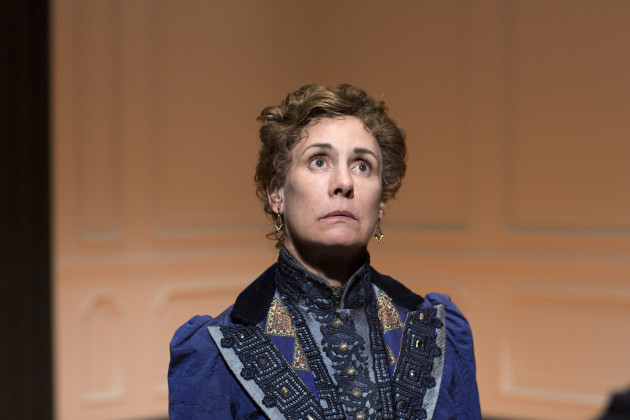
Laurie Metcalf in a scene from A DOLL’S HOUSE, PART 2 . Photo credit: Brigitte Lacombe
Who would ever have imagined that a sequel based on any play by Henrik Ibsen could be a nearly nonstop laugh fest? But “A Doll’s House, Part 2,” now playing on Broadway, is just that—and without being disrespectful toward the serious feminist themes in Ibsen’s 1879 drama, a benchmark in its examination of women’s struggles in a male-dominated environment and an affirmation of a woman’s right to go her own way. As Karl Marx said about history, theater sometimes covers the same ground twice, “the first time as tragedy, the second time as farce.”
Actually, the new work by Lucas Hnath, a 37-year-old playwright who has written several well-received Off-Broadway plays, doesn’t repeat Ibsen’s plot, though it does revisit the views toward women that Nora Helmer, the play’s heroine, rebelled against when she famously slammed the door on her house, husband and three children, and left to explore the possibilities of an independent life. Now it’s 15 years later, and there’s a knock on the same door Nora had used to escape what would have been her fate of continuing to be treated as a “doll,” cared for and condescended to by a tradition-bound husband. Is she in trouble? Yes, but not in a way you might anticipate.
Nora strides in, beautifully dressed and loudly assertive, a successful and wealthy author of books about “the way the world is towards women and the ways in which the world is wrong,” as she tells Anne Marie, the elderly nanny who stayed with the family to raise her children. One novel is autobiographical and has encouraged other women to leave their husbands, she says. She uses a pseudonym, but an angry husband tracked down her real name, and that has led to her discovery that her husband, Torvald, never divorced her, which she had assumed he had. A revelation that she is still married would brand her as a hypocrite. Worse, it would make her a criminal. She has “signed contracts, done business, had lovers—all sorts of things that a married woman isn’t allowed to do, that are illegal, that amount to fraud.” A divorce would straighten things out. (Illegally signing a document, though for a good reason, got Nora into hot water in Ibsen’s play—but you don’t have to know the original to understand this one.)
My thoughts turned to the Orthodox Jewish stricture through which a woman is not divorced unless her husband gives her a document called a gett. A man gives the gett to the woman. There is no vice versa.
- No Comments
April 27, 2017 by Barbara Stock
How Trump Enriched Our Marriage

Protestors from the Women’s March. Photo credit: Shira Gorelick.
I struggle to see the good in Donald Trump. His words and actions frighten me. Early in the campaign, my husband described him as a used car salesman. Now we don’t joke. I still sometimes wake in the night with images of gravestones overturned, children passing out from gassed or polluted air, backroom abortions.
So, I was surprised when I realized the huge positive effect this presidency has brought to our marriage.
My husband and I married 21 years ago, well into middle age. Like most second-marrieds, we treasure what we have together and give each other lots of space to grow individually.
My husband is an extreme introvert. He is happiest reading action mysteries, watching tennis, nature films or action movies—not my genres. I’m happy he’s happy.
I, too, am an introvert. My work as a therapist precludes my discussing the details of my day. I’ve always appreciated our silence. We’re not exactly the most exciting couple, but as we’ve moved into our seventies and eighties, we’ve anchored each other well. I never questioned our rhythm. Happily, we’ve hugged, cuddled, shared occasional observations and appreciated our quiet space.
Until January 21. Trump’s inauguration changed our daily lives.
- 2 Comments
April 25, 2017 by Rachel Sandalow-Ash
In Defense of Lashon Hara
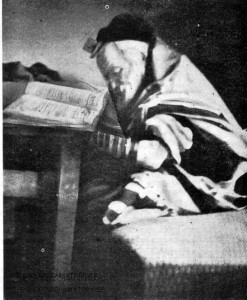
Rabbi Yisroel Meir Kagan
On my grandmother’s wall, a black-and-white photograph of an old, bearded man stares down at me. “Do you know who that is?” she asks.
“Yes, Grandma,” I sigh. She asks me this question every time I go to her apartment. “That’s our ancestor, the Chofetz Chaim.”
“A great tzadik,” a righteous man, she agrees. “He preached about the dangers of gossip, of lashon hara.”
In 1873, my great-great-great grandfather, Rabbi Yisroel Meir Kagan, wrote a book on the biblical laws prohibiting gossip and slander. The book was called Chofetz Chaim, “Seeker of Life,” and his followers started calling its author by the same name. When I first learned about the Chofetz Chaim, I thought his opposition to gossip made sense; after all, nobody likes to be talked about behind their back.
But growing up, I realized that in day-to-day life, people rarely characterize remarks made by men as gossip. And then I wondered, is gossip just a derogatory term for women’s speech? And are prohibitions against gossip just another way to silence women?
In the Chofetz Chaim’s Orthodox, Eastern European world, women did not study Talmud in Yeshiva; and they were excluded from political activity. So women talked about work, family, and the ins and outs of everyday life. In other words, when and where women could not talk about ideas, they talked about people: a topic of conversation that the rabbis termed gossip.
However, women didn’t and don’t just gossip when we lack access to highbrow intellectual conversations. We also engage in gossip in order to effectively combat injustice. We talk about people, rather than simply talking to them, because in a world of patriarchy and power imbalances, directly addressing those who harm us is often a futile or counterproductive strategy. Women, and all people in subaltern positions, gossip because we find strength in numbers.
- 2 Comments
April 24, 2017 by Bonnie Morris
Feminist Soundwaves, Jewish Lesbian Voices
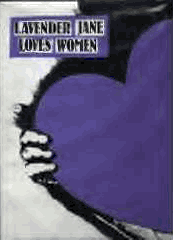 As a feminist scholar whose specialty is the women’s music movement of the 1970s, 80s and 90s, I’m starting to do more and more work with museums and archives, making certain that our aging radical foremothers aren’t forgotten. Devoted fans and audiences who lived through and participated in the women’s music revolution, and who flocked to concerts and festivals just to meet other bold Amazons in the years before any LGBT rights were enshrined, may find it hard to realize our era is now historical. But the women’s music movement has just passed the 45-year mark—a timeline which really began with the energy and inventiveness of Jewish lesbian artists, producers and songwriters. In one dramatic year, 1972-73, Maxine Feldman released the lesbian anthems “Amazon” and “Angry Atthis;” the Olivia Records collective formed; and Alix Dobkin released the world’s first full-length lesbian album, “Lavender Jane Loves Women.”
As a feminist scholar whose specialty is the women’s music movement of the 1970s, 80s and 90s, I’m starting to do more and more work with museums and archives, making certain that our aging radical foremothers aren’t forgotten. Devoted fans and audiences who lived through and participated in the women’s music revolution, and who flocked to concerts and festivals just to meet other bold Amazons in the years before any LGBT rights were enshrined, may find it hard to realize our era is now historical. But the women’s music movement has just passed the 45-year mark—a timeline which really began with the energy and inventiveness of Jewish lesbian artists, producers and songwriters. In one dramatic year, 1972-73, Maxine Feldman released the lesbian anthems “Amazon” and “Angry Atthis;” the Olivia Records collective formed; and Alix Dobkin released the world’s first full-length lesbian album, “Lavender Jane Loves Women.”
How should we mark this unique legacy? Early in 2017, I had the unique opportunity to present an exhibit and lecture at the Library of Congress, in Washington, D.C., showcasing feminist songsheets and rare albums. The exhibit, three glass cases in the Great North Hall of the original Jefferson Building, allowed visitors to see the arc of vocal activism from suffrage songs to the founding of Olivia Records to the era of vinyl albums, as well as excerpts from women’s music books and magazines that reported on concerts and festivals in the era of lesbian feminism. With the invaluable support and assistance of Library of Congress staff specialist Meg Metcalf, whom I met through D.C.’s Rainbow History project, we put together a display that thousands of visitors encountered from January 27 to April 2.
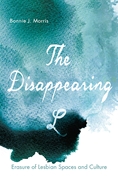 My recent book The Disappearing L makes clear that this movement of woman-identified music began with Jewish leadership.
My recent book The Disappearing L makes clear that this movement of woman-identified music began with Jewish leadership.
- No Comments
 Please wait...
Please wait...